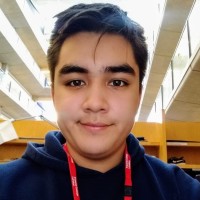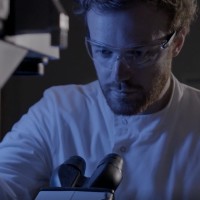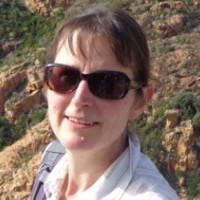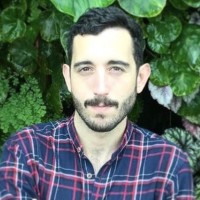Lab members
Dr Jayanti SinghResearch Associate | j.singh8@imperial.ac.uk
|
|
 |
Dr Souvik NaskarResearch Associate | s.naskar@imperial.ac.uk |
 |
Dr Max ManleyResearch Associate | max.manley16@imperial.ac.ukCell membranes separate the complex inner workings of the cell from its environment and are vital to life itself. Max aims to understand how bacteria remodel their cell membranes. His work focuses on bacterial dynamin-like protein and PspA, both of which have eukaryotic homologues. Thus, these proteins could reveal ancient conserved principles of membrane remodelling across all three kingdoms of life. Max studies these proteins using a combination of cryo-electron microscopy, biophysical and biochemical techniques. |
 |
Alasdair LeedingPhD student | a.leeding23@imperial.ac.ukBacteria can assemble complex, membrane-spanning macromolecular assemblies known as secretion systems. Secretion systems can secrete a diverse array of substrates and are critical to infection and biofilm formation in a number of pathogens. Focusing on the Tad (Tight Adherence) secretion system (TadSS), Alasdair aims to understand the mechanism by which the TadSS assembles and extrudes a pilus. His work combines methods in molecular biology, protein biochemistry and cryo-electron microscopy. |
 |
Dr Jie Zhang
|
 |
Dr Niranjan Kumar
|
 |
Dr Lucas Kuhlen
|
 |
Bowen ZhangPhD student | bowen.zhang16@imperial.ac.uk |
Pengtao LiangPhD student | bowen.zhang16@imperial.ac.uk |
|
Lindsey LeePhD student | yin.lee24@imperial.ac.uk |
|
 |
Megan BattleyResearch Technician | m.battley@imperial.ac.uk, +44 07565 811 189 |
Dr Adam JalalResearch Associate | a.jalal@imperial.ac.ukAdam earned his PhD from the John Innes Centre where he worked on the ParB/Noc family of CTPases. Currently, Adam's research focuses on chromatin remodelling by the INO80 family of proteins. |
|
 |
Dr Paul Girvan
|
 |
Liz McCormack
|
 |
Valerie Good
|
 |
Dr Kirsten JensenSenior Research Officer | k.jensen@imperial.ac.uk, +44 020 7594 3058Kirsten has been working in research for over 20 years. She began her career in Hamburg at the Heinrich Pette Institute - Leibniz Institute for Experimental Virology, where she worked on the molecular basis of Acute Promyelocytic Leukaemia |
 |
Dr Richard KelwickRSE Enterprise Fellow | r.kelwick@imperial.ac.uk, +44 020 7594 3058, @rkelwickRichard is a Royal Society of Edinburgh Enterprise Fellow (2018-2019) and an entrepreneurially driven researcher, with expertise in both cancer biology and synthetic biology. |
 |
Dr Alexander J. WebbResearch Associate | alexander.webb1@imperial.ac.uk, +44 020 7594 3058, @ajwebb1979Alex is a Microbiologist with a research focus on engineering bioreporters for global health. |
Dr Rory CaveResearch Associate | r.cave@imperial.ac.uk |
|
Thomas AdamResearch Assistant | thomas.adam19@imperial.ac.uk |
|
Martin TranResearch Assistant | martin.tran13@imperial.ac.ukMartin is a Research Assistant working as part of the UK DRI Care Research and Technology Centre. Martin's main focus is on developing point of care diagnostics for early detection of Urinary Tract Infections for people living with Dementia. |
|
Pedro Lovatt Garcia
|
|
 |
Dr Soo Mei CheeLaboratory Manager | s.chee@imperial.ac.uk, +44 020 7594 8556Soo Mei is the Laboratory Manager for the Department of Infectious Disease. |
 |
Dr David Carreno Yugueros
|
Gadea Meecham-Garcia
|
|
 |
Will McKenny
|
 |
Thomas TrainerPhD student | t.trainer@imperial.ac.uk |
|---|
Dr Witold PostekResearch Associate| w.postek@imperial.ac.uk |
|
|---|---|
Dr Cameron BoggonHonorary Research Associate (Postdoc.Mobility Fellow)| c.boggon@imperial.ac.uk |
|
Dr Jorin RexingerResearch Associate| jorin.riexinger@univ.ox.ac.uk
|
|
Dr Inez RoegiersResearch Associate (HFSP Fellow) | i.roegiers24@imperial.ac.uk |
|
Ella IshmaelPhD student | e.ishmael24@imperial.ac.uk
|
|
Rohan SekhriPhD student | r.sekhri23@imperial.ac.uk |
|
Kush DesaiPhD student | kushaal.desai17@imperial.ac.uk
|
|
|
|
|---|---|
|
|
|
|
|
|
General enquiries
Section Manager
Brett Onslow
+44 (0)20 7594 3871
Personal Assistant for the Section of Structural Biology
Kasia Pearce
+44 (0)20 7594 2917
Laboratory Manager
Soo Mei Chee